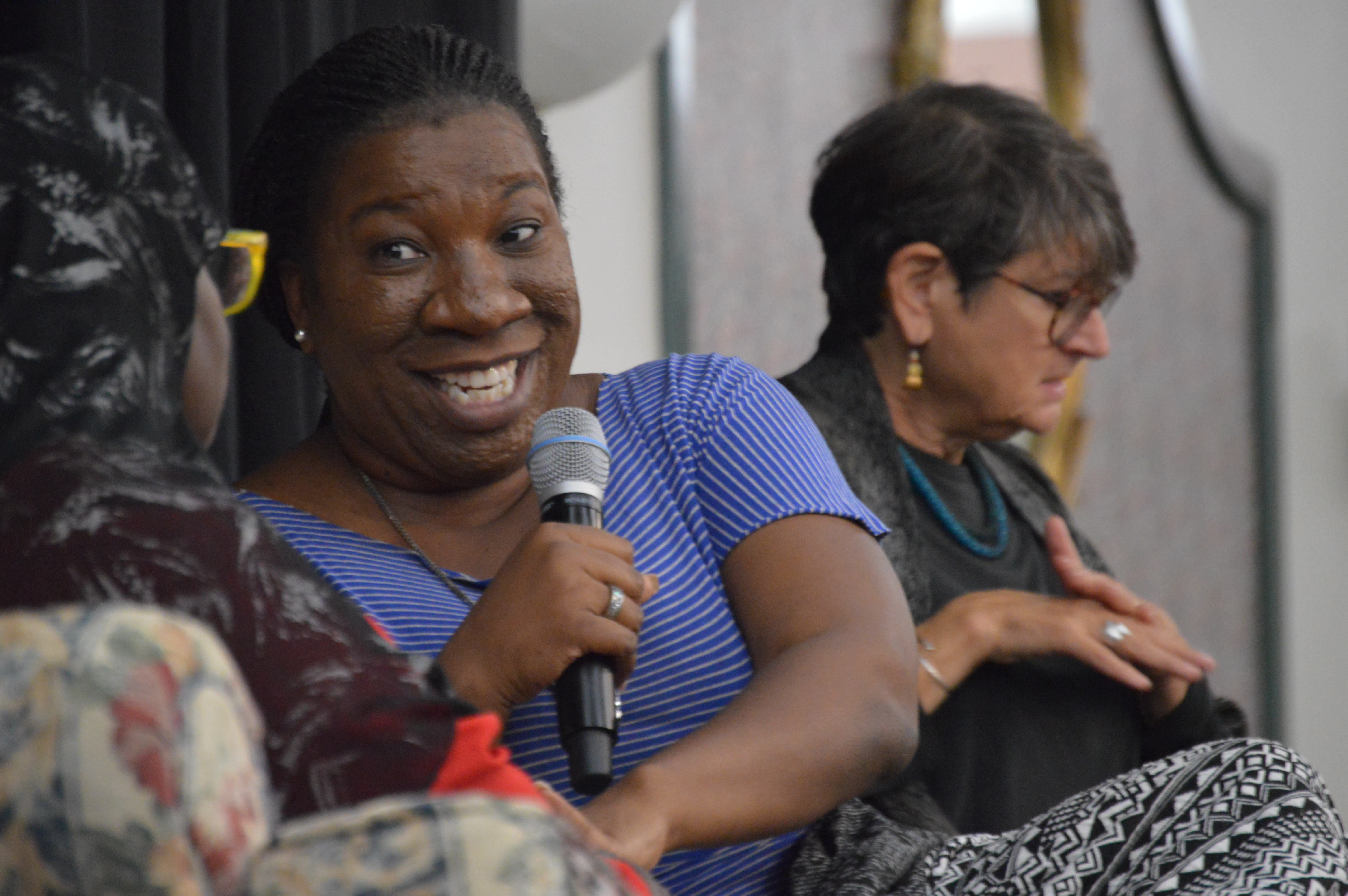By: Kate Rogers, News Editor
The fourth Maine Women’s Summit on Economic Security was held in Augusta on Wednesday, October 2. The Maine Women’s Lobby collaborated with the Me Too Movement to focus on sexual assault and it’s impact on the overall economy of our country and of Maine.
Commissioner of the Maine Department of Labor Laura Fortman, Women’s Lobby Education Fund chair Andrea Berry, and Donna Brown of the Wabanaki Women’s Coalition offered the opening remarks. Following this, there were two hour long “breakout sessions.” These were various workshops and presentations on relevant topics such as “Storytelling for social change,” and “Transgender sexual and domestic violence.” One of USM’s deans of students Sarah Holmes co-led a breakout session on Title IX, the Clery Act and student activism. Following the breakout sessions, lunch was offered. Then Elizabeth Ward Saxl from the Maine Coalition Against Sexual Assault introduced the final speaker. Following that conversation were two more breakout sessions and a closing featuring live music by Portland native Kenya Hall.
Tarana Burke, the founder and executive director of the Me Too Movement organization, was the featured guest at the summit. The Me Too Movement was founded in 2006 by Burke, but it took off as a social phenomenon in 2017 when the #MeToo hashtag began trending following the sexual abuse allegations against Harvey Weinstein. The message of the Me Too Movement is that survivors of sexual abuse are not alone— that so many people can say “me too.” According to the organizations website their mission is, simply, to “support survivors and end sexual violence.”
Burke spoke with Samaa Abdurraqib, the community engagement coordinator from the Maine Coalition to End Domestic Violence. Abdurraqib asked several questions about the Me Too Movement which Burke answered and elaborated on. Some of the main focuses of the conversation were the importance of specific activism against sexual assault, the meaning and relevance of intersectionality within the Movement, and her goals and values within and beyond the movement.
“I am so perplexed why I even have to explain why this matters,” Burke said about raising awareness of sexual violence. She said that sexual violence is “individualized” more than any social justice issue. For example, when an incident of gun violence occurs, there will often be a rally of community support and outrage, whereas when sexual violence occurs the victim often has to carry the weight themselves. According to Burke this is because there is so much shame and blame associated with sexual abuse there is less empathy and less understanding.
When it comes to supporting survivors, there is even more fundamental misunderstanding and very little assistance. This is where the impact on economy becomes more clear. Burke emphasized the importance of speaking out about how hard it is to function while dealing with trauma from sexual violence. Burke offered the examples of not being able to find a job because of PTSD, or not being able to get your child to school because of fear of what might happen to them there. “It is incredible to me that folks have to live, and work, and worship, and learn and just exist in the spaces where they were harmed.” Burke said.
When asked about intersectionality, Burke said: “Sexual violence does not discriminate.” She spoke about the importance of acknowledging that sexual violence affects different groups in different ways because of those groups’ distinct experiences and privileges. “A trickle-down approach to any work does not work … the people at the bottom get scraps.” She said.
Burke was clear in saying that the Me Too Movement should and would stay focused on sexual violence. To broaden the focus of the movement would “dilute the work that has to be done,” she said.
There was immense encouragement at the summit to write to legislators about concerns regarding sexual violence and other social justice issues. There were many reminders of the importance of this, and tables with post cards set up so that people could write something and put it in a box to be sent for them.
Burke mentioned the importance of using empathy as a tool for change. At the same time, she said that there should be no need for survivors to have to tell their stories. It should be up to everyone to support survivors, to make change for them. She encourages people to look for places where their communities and governments are failing and try to fix them. “I do not want us to continue to cut and bleed for no reason,” said Burke.

